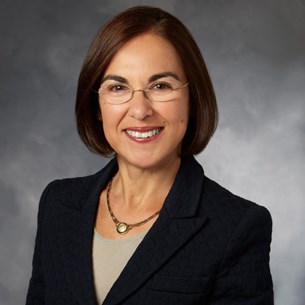Meeting
2018 Palliative and Supportive Care in Oncology Symposium

Stanford Cancer Center, Palo Alto, CA
Lidia Schapira, Marcy Winget, Siqi WU, Jennifer Kim, Cati Brown-Johnson
Background: Prior research has identified barriers to provision of quality survivorship care in primary care settings such as lack of expert knowledge and training, primary care burden and insufficient communication with oncologists. We implemented a survivorship clinic at an academic medical center in the primary care division with the goal of defining the elements required for a seamless transition and co-management. Methods: The primary care physician received training in cancer survivorship based on the ASCO Curriculum, shadowing of 3 breast medical oncologists and 1 gynecologic oncologist, attendance at the 2018 Cancer Survivorship Symposium and NCCN’s Cancer Survivorship Advocacy Meeting. Patients with breast and gynecologic cancers were referred by their oncologists or APP (PA or NP) at various points in their cancer trajectory. Clinical characteristics of patients were abstracted from the electronic medical record and in-depth interviews were conducted with 2 patients. Results: 41 patients attended the survivorship clinic. The majority (88%) were breast (63%) or gynecologic (24%) cancer survivors. Patient age was evenly distributed with 8 age < 46, 11 age 46-59, and 7 age > = 60. 23 (56%) patients had stage < 3 at diagnosis. 21 (51%) had been cancer-free for five years + and 4 were referred by their oncologist to help with patient co-management during cancer treatment. Of the 8 breast cancer patients < 46 years old, 6 had a genetic mutation and 7 were interested in fertility. 15/26 breast cancer patients are currently on endocrine therapy. Interviewed patients expressed appreciation for receiving whole-person care and knowing there is bidirectional communication between clinicians. Conclusions: Cancer survivors are open to and interested in a survivorship visit based in a primary care clinic; this includes both patients who have been cancer-free > 5 years as well as those recently treated with curative intent. Greater efforts are needed to train primary care physicians to deliver survivorship visits that are customized to meet the needs of cancer survivors.
Disclaimer
This material on this page is ©2024 American Society of Clinical Oncology, all rights reserved. Licensing available upon request. For more information, please contact licensing@asco.org
2018 Palliative and Supportive Care in Oncology Symposium
Poster Session
Poster Session B: Advance Care Planning; Caregiver Support; Coordination and Continuity of Care; End-of-Life Care; Models of Care; Survivorship; and Symptom Biology, Assessment and Management
Advance Care Planning,End-of-Life Care,Survivorship,Coordination and Continuity of Care,Symptom Biology, Assessment, and Management,Models of Care,Caregiver Support
Survivorship
J Clin Oncol 36, 2018 (suppl 34; abstr 180)
10.1200/JCO.2018.36.34_suppl.180
180
E1
Abstract Disclosures
2024 ASCO Quality Care Symposium
First Author: M. Kelsey Kirkwood
2023 ASCO Quality Care Symposium
First Author: David I. Shalowitz
2019 ASCO Quality Care Symposium
First Author: Michael T. Halpern
2023 ASCO Annual Meeting
First Author: Adaeze Amaefule